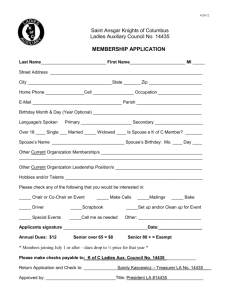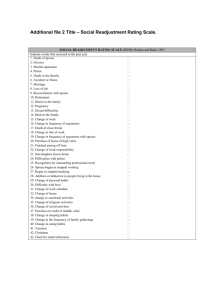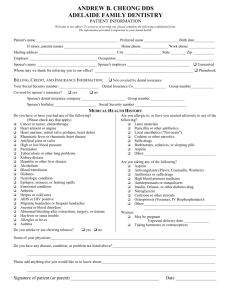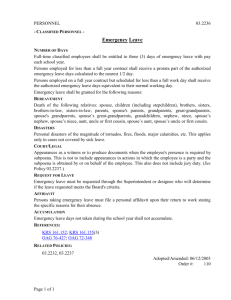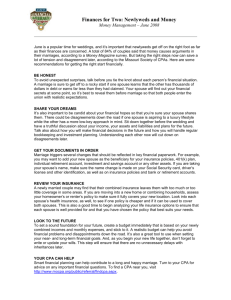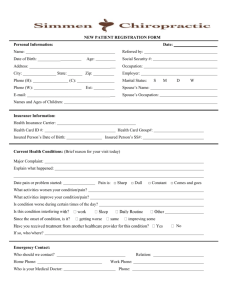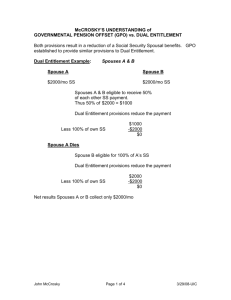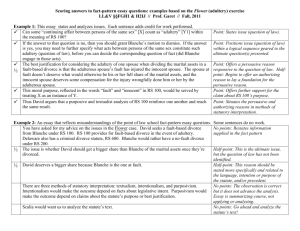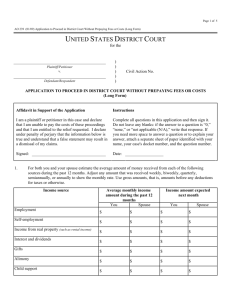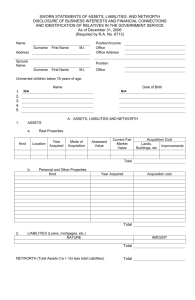OGE Formal Opinions and Advisory Memoranda--97 x 5-
advertisement
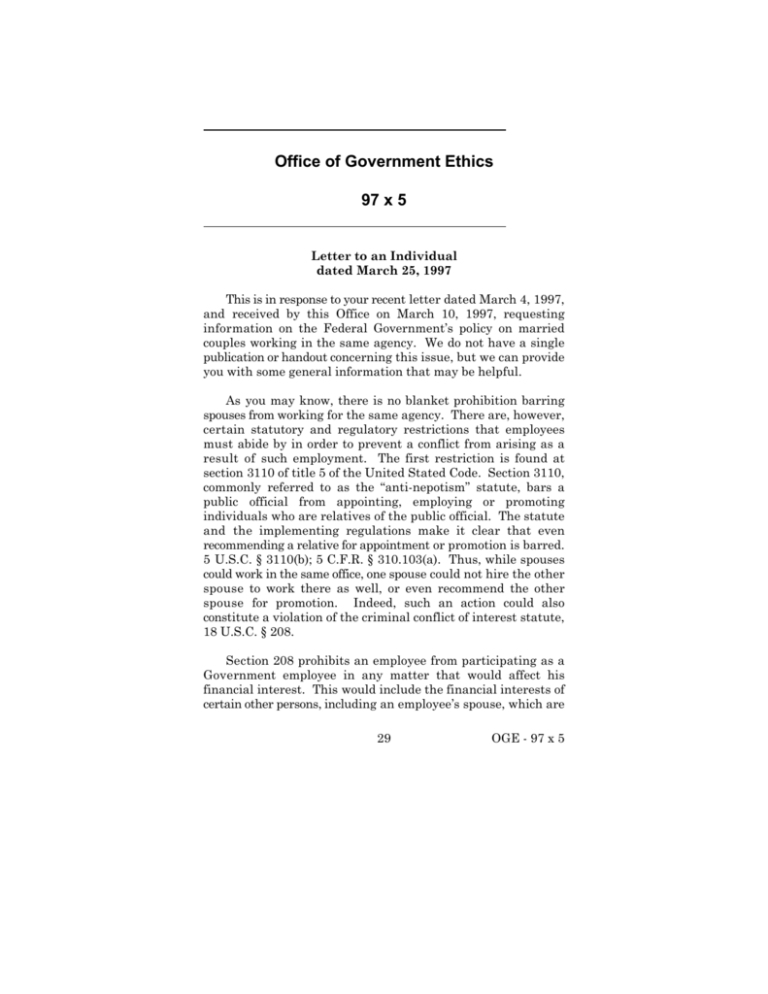
Office of Government Ethics 97 x 5 Letter to an Individual dated March 25, 1997 This is in response to your recent letter dated March 4, 1997, and received by this Office on March 10, 1997, requesting information on the Federal Government’s policy on married couples working in the same agency. We do not have a single publication or handout concerning this issue, but we can provide you with some general information that may be helpful. As you may know, there is no blanket prohibition barring spouses from working for the same agency. There are, however, certain statutory and regulatory restrictions that employees must abide by in order to prevent a conflict from arising as a result of such employment. The first restriction is found at section 3110 of title 5 of the United Stated Code. Section 3110, commonly referred to as the “anti-nepotism” statute, bars a public official from appointing, employing or promoting individuals who are relatives of the public official. The statute and the implementing regulations make it clear that even recommending a relative for appointment or promotion is barred. 5 U.S.C. § 3110(b); 5 C.F.R. § 310.103(a). Thus, while spouses could work in the same office, one spouse could not hire the other spouse to work there as well, or even recommend the other spouse for promotion. Indeed, such an action could also constitute a violation of the criminal conflict of interest statute, 18 U.S.C. § 208. Section 208 prohibits an employee from participating as a Government employee in any matter that would affect his financial interest. This would include the financial interests of certain other persons, including an employee’s spouse, which are 29 OGE - 97 x 5 (97 x 5) Office of Government Ethics attributed to the employee under section 208. Under the implementing regulations, the term “financial interest” means the potential for gain or loss to the employee, or other person (such as a spouse) specified in section 208, as a result of Governmental action on a particular matter. See 5 C.F.R. § 2640.103(b), as published at 61 Fed. Reg. 66830, 66844 (December 16, 1996). Section 208 would thus prohibit an employee from promoting his spouse into a better paying position, for example, or approving a bonus for his spouse. In cases where the two employees are not married, but are members of the same household, the Standards of Ethical Conduct for Employees of the Executive Branch would usually bar each employee from participating in a matter that would affect the other’s financial interest unless the proper regulatory procedures were followed. See Subpart E of 5 C.F.R. part 2635. Based on the foregoing, you can see that while there is no rule barring spouses from working for the same agency, there are statutory and regulatory restrictions that prevent conflicts of interest from arising in these cases. These restrictions protect the Government and the public from the potential for abuse that such a situation could otherwise engender. We hope that this information is helpful to you. Sincerely, F. Gary Davis General Counsel 30 OGE - 97 x 5


